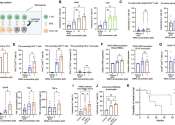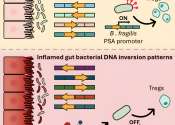New vaccine strategy may mean the end of the line for endless boosters
Scientists at UC Riverside have demonstrated a new, RNA-based vaccine strategy that is effective against any strain of a virus and can be used safely even by babies or the immunocompromised.
Apr 15, 2024
0
203









